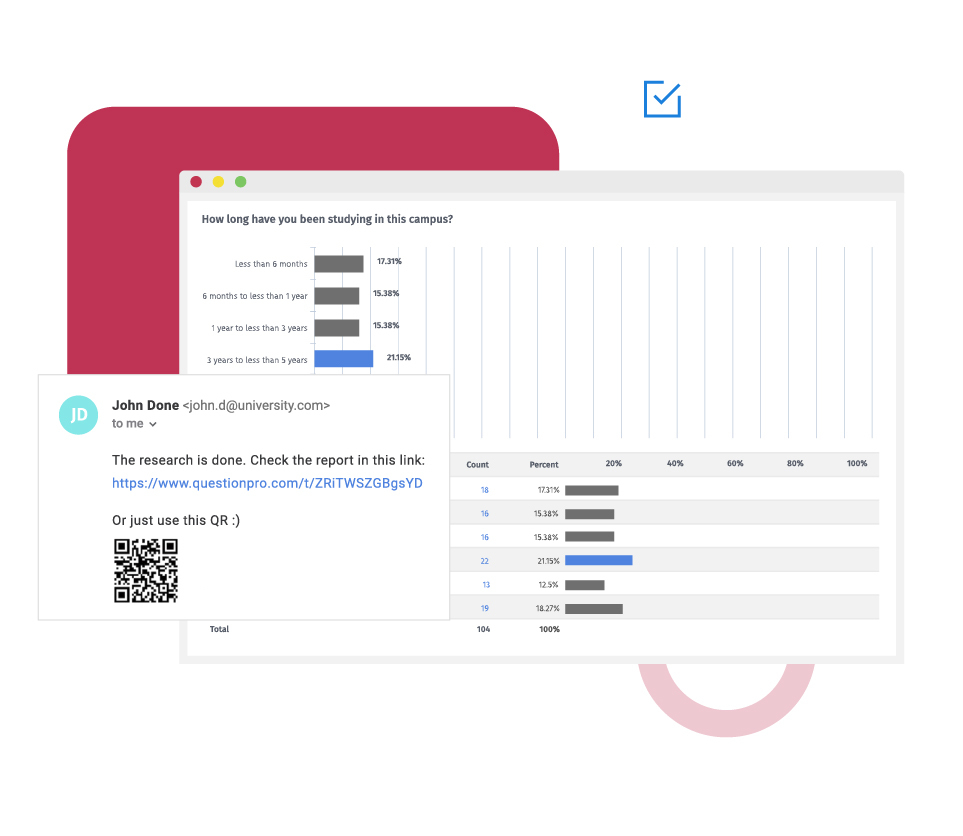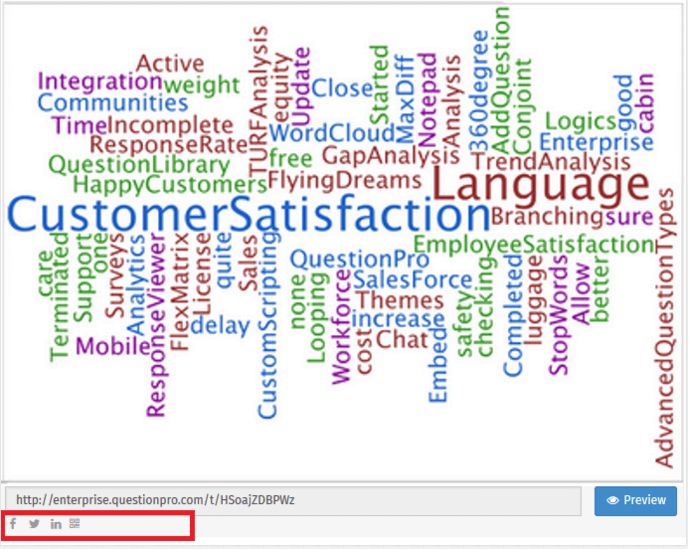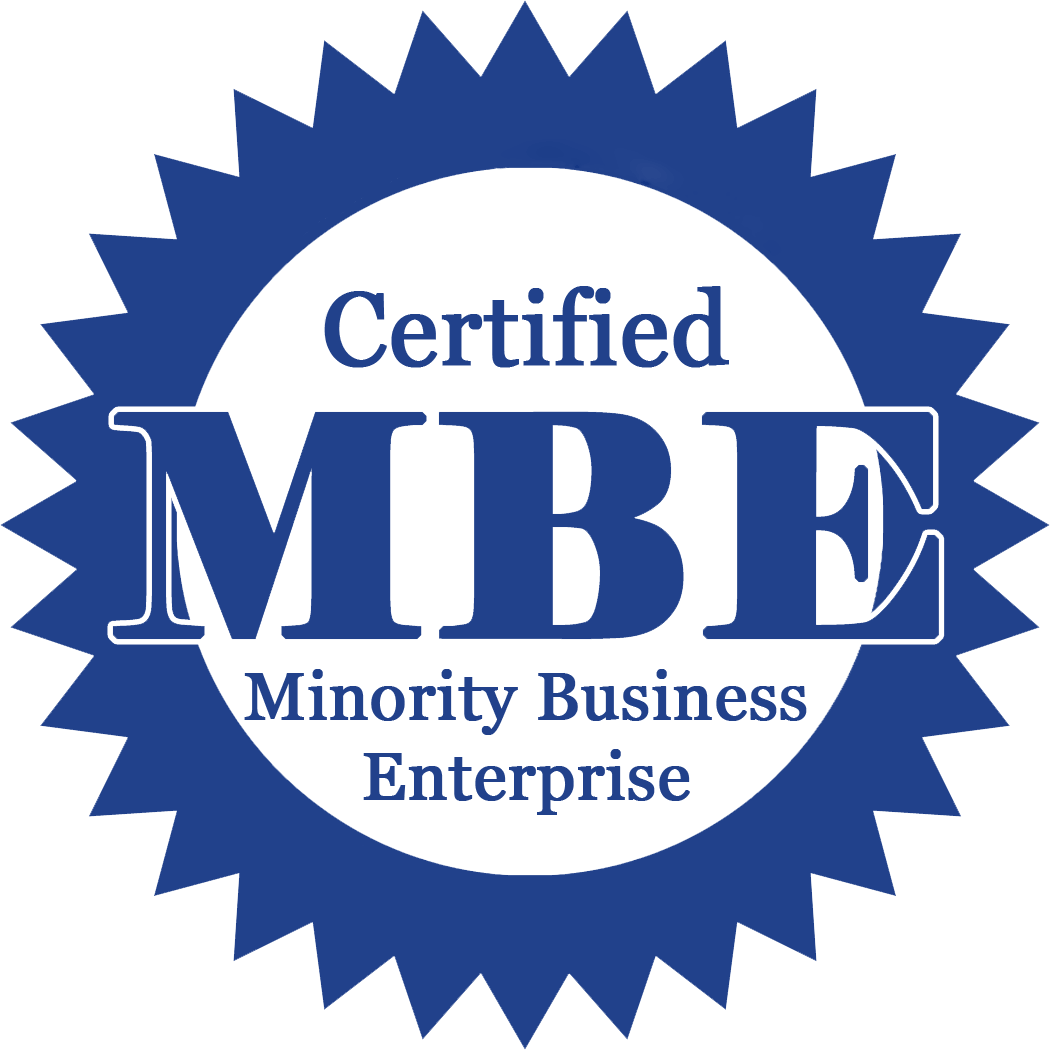Word clouds or weighted lists display words or survey responses as a text graphic, the most common value written represented by the largest text.
Examples of word cloud analysis in a survey
Imagine you are conducting an employee experience survey. This section has open-ended questions with regards to your onboarding experience or processes. Using the tag cloud, you can determine which phrases or words were most used in the open-ended responses. Based on that, you can determine if their experiences were good or bad. So a word cloud for this essentially would have words such as long, bad, unplanned, unscheduled, pleasant, informative, boring, etc.

If you are conducting customer experience surveys, word cloud comes in handy to quickly understand customer feedback. Looking at the result of the tag cloud in your report, you can clearly understand if their experience was positive or negative. The word cloud would typically have words or phrases such as really bad, disappointed, excellent, revisit, good service, high price, poor quality, value for money, etc.

Uses of word cloud in surveys
A word cloud can come in handy when conducting customer satisfaction surveys. Customers will put in comments and feedback in the open-ended questions. Based on the frequent usage of words or phrases such as good, satisfied, bad, negative, dissatisfied, unhappy, delighted, etc. the word cloud will be populated and show you the prominence of those phrases or words.
Advantages of creating surveys with a word cloud
Deeper insights: With open-ended questions, respondents tend to give out more information and are more candid. This helps in gauging how their sentiments better and a word cloud generator helps assimilate this information better and in one place. This helps in collecting better insights from your online questionnaires.
Quick results: Using a word cloud delivers quick results, and you can derive inferences faster. This gives you the time and direction to take corrective actions.
Limited questions: You can have a limited number of open-ended questions for the word cloud and still derive deep insights. Studying the word cloud can give you ideas about aspects that made your customers' experience good or bad.
How to use word cloud in surveys?
To use word cloud in your surveys read our help files on how to set up a word cloud.
Survey Software Easy to use and accessible for everyone. Design, send and analyze online surveys.
Research Suite A suite of enterprise-grade research tools for market research professionals.
Customer Experience Experiences change the world. Deliver the best with our CX management software.
Employee Experience Create the best employee experience and act on real-time data from end to end.







